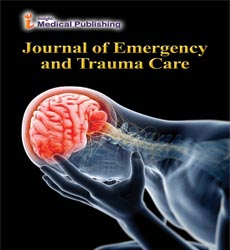Ethical haressment in ICU workplace
Abstract
The aim of this study was to determine to what extent, healthcare practitioners in ICU worry about Workplace bullying (WPB) and whether it affects the quality of care and patient safety from their perception. The behaviors of individuals as well as some elements of their personality emerge the phenomenon and contribute to it becoming more intense. Interventions, therefore aim to change perceptions, attitudes and behaviors, ie the way in which individuals perceive and approach their work. They should also aim to educate individuals so that they respect the personality and accept the diversity of their colleagues, resist manipulation, respect themselves and dare to do self-criticism. For this reason, it should investigate the reasons that cause it in a workplace and review those characteristics of the organization's functioning that directly or indirectly favor its existence. Researches have highlighted the positive effects of replacing authoritarian management and regular confrontation with employees with a form of management based on the principles of cooperation, meritocracy and practical interest in the needs of individuals and the team as a whole. The intervention of competent bodies in the ICU and in every professional sector of the hospital is considered necessary to address the problem, as individual solutions usually lead to the victim's submission or removal or leaving the perpetrator in the workplace and the continuation of unacceptable behavior of. Such solutions succeed in protecting the victim, but fail in the administration of justice
Open Access Journals
- Aquaculture & Veterinary Science
- Chemistry & Chemical Sciences
- Clinical Sciences
- Engineering
- General Science
- Genetics & Molecular Biology
- Health Care & Nursing
- Immunology & Microbiology
- Materials Science
- Mathematics & Physics
- Medical Sciences
- Neurology & Psychiatry
- Oncology & Cancer Science
- Pharmaceutical Sciences
